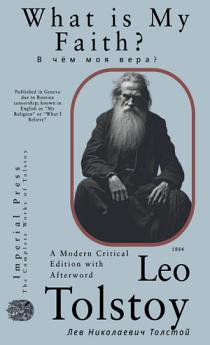What is My Faith?
Acerca de este libro electrónico
Published in Geneva by the same free-thinking circle in late 1884, the book was promptly banned in the Russian Empire, its import thwarted at the frontier, for Tolstoy aimed straight at the nexus of state power and ecclesiastical dogma, accusing both of betraying the Sermon on the Mount. The treatise advances a literal reading of Christ’s ethical injunctions, arguing that Christian truth requires absolute renunciation of violence, oath-taking, and property; in place of theology Tolstoy offers a painstaking commentary on Gospel passages that converges on a form of Christian anarchism, a term his readers later supplied. By fusing spiritual rigor with social critique, the book redirected Russian intelligentsia away from Marxist militancy toward ethical pacifism, influenced the Doukhobors in their emigration to Canada, and furnished moral ammunition for pacifist movements across Europe, all while foreshadowing the concise biblical harmony that would become “The Gospel in Brief.”
This critical reader's edition presents a modern translation of the original manuscript, crafted for the modern reader with clean, contemporary language and simplified sentence structures that clarify his complex Russian phrasing and specific antiquated references. Supplementary material enriches the text with autobiographical, historical, and linguistic context, including an afterword by the translator on Tolstoy’s personal history, impact, and intellectual legacy, an index of the philosophical concepts he employs—emphasizing Existentialism and influence by Schopenhauer—a comprehensive chronological list of his published writings, and a detailed timeline of his life, highlighting the personal relationships that shaped his philosophy.











